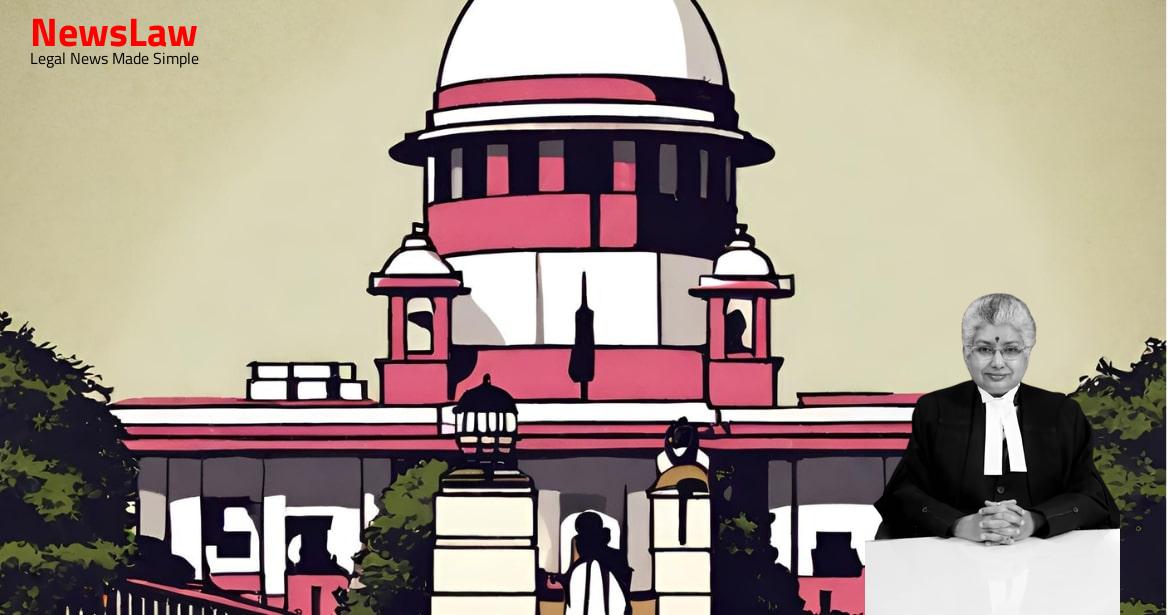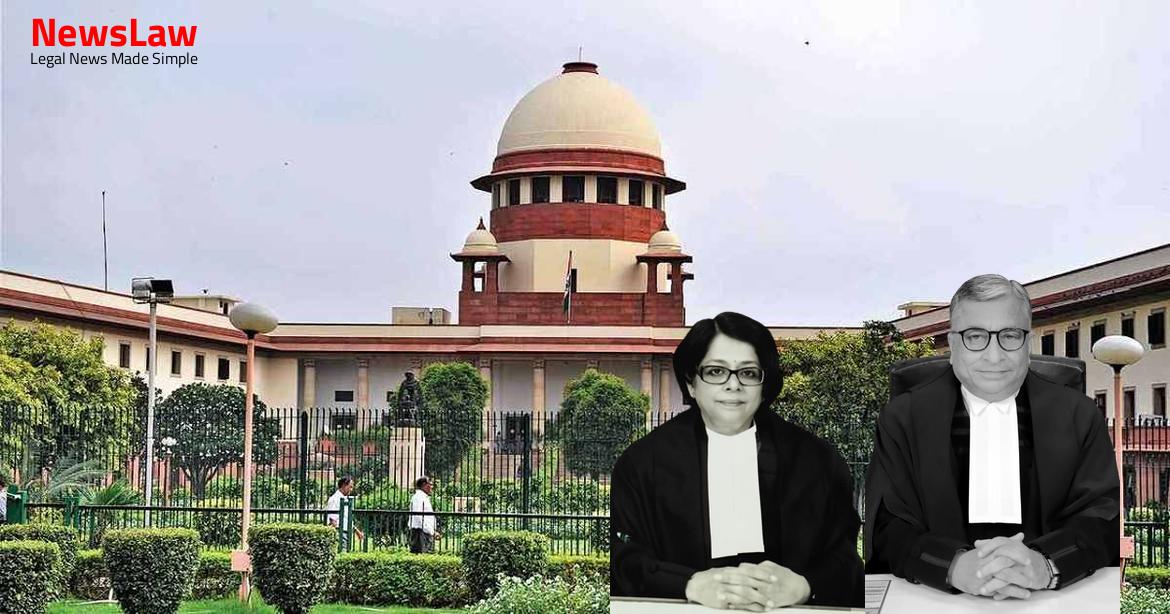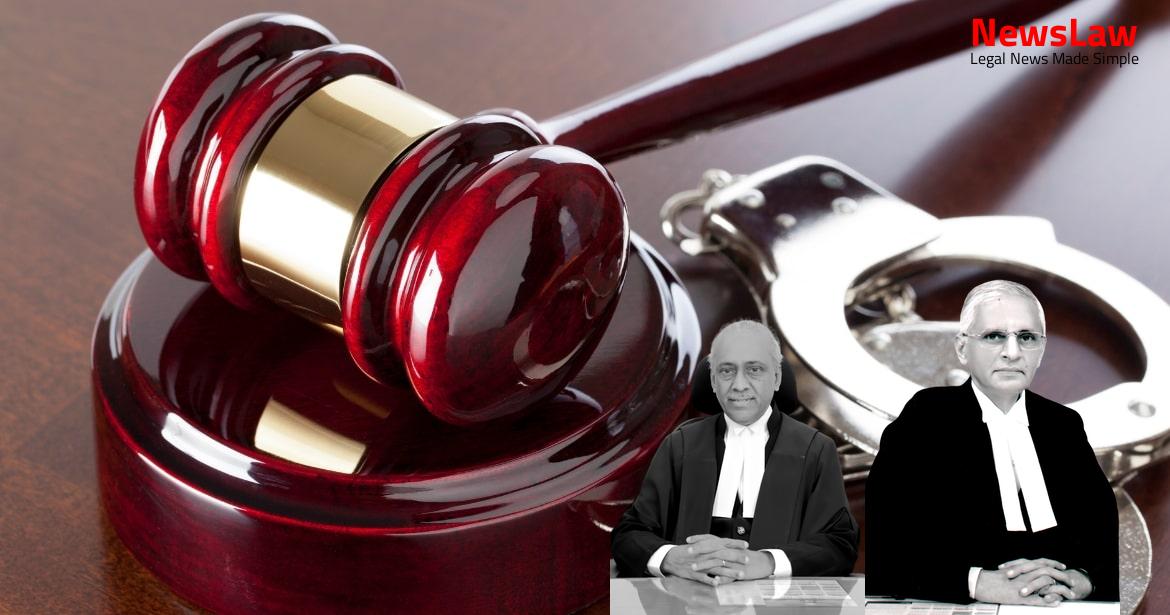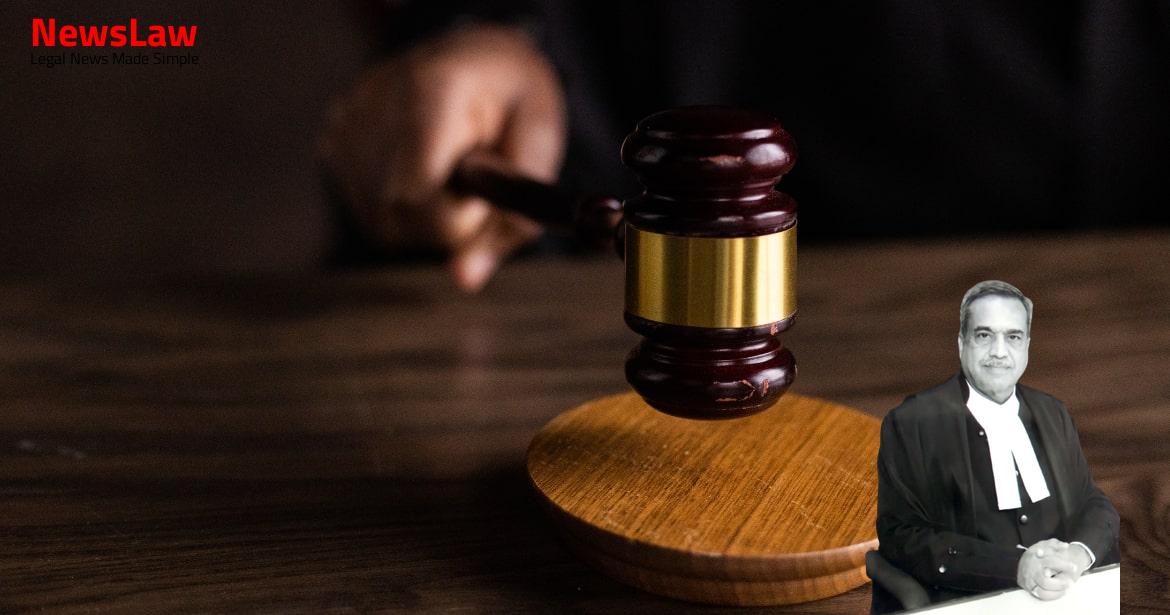Delve into the intricate legal analysis presented by the court regarding the denial of furlough in a significant case. The court’s judgment focused on the application of rules and regulations governing furlough, weighing public interest and security concerns. This summary highlights the key legal aspects and factors considered by the court in reaching its decision.
Facts
- The respondent was accused of high profile cases of rape and atrocities punishable under various sections of the IPC.
- Opinions of ACP and DCP pointed to the respondent engaging in criminal misconduct to hinder judicial proceedings by threatening, assaulting, and murdering witnesses.
- The respondent’s followers have been involved in frequent assaults on witnesses, with seven offenses registered against him.
- One offense involving the respondent was being supervised by IPS officer Shoba Bhutada, who was threatened by the respondent’s followers.
- The respondent’s extensive network of followers poses a threat to witnesses and creates a volatile situation if the respondent is released on furlough.
- The DGP rejected the grant of furlough due to the respondent’s criminal history and the potential risks to witnesses and law enforcement officials.
- The respondent’s furlough application was rejected due to the negative opinion of the Jail Superintendent and Assistant Commissioner of Police.
- Reasons for rejection included the respondent’s involvement in illegal activities inside the jail, potential violation of law and order if released, and the threat he posed to witnesses and law enforcement personnel.
- Incidents of bribery, threats, and assaults on witnesses in the Asaram case were cited as reasons for denying furlough.
- The respondent’s father’s health status, including chronic ailments and critical condition, was also considered in the decision.
- The respondent was released on furlough in the past on account of his mother’s health,
Also Read: Electoral Malpractices in Mayor Election
Analysis
- Rule 3 provides for the grant of furlough to prisoners.
- Rule 4 outlines the conditions when furlough shall not be granted.
- Rule 17 clarifies that the Rules do not confer a legal right on a prisoner to claim release on furlough.
- The decision to grant furlough can be influenced by concerns of public peace and tranquility.
- Furlough may be denied if it is not in the interest of society.
- The nature of the crime committed by the respondent in this case disentitles them to discretionary relief.
- The furlough leave application of the respondent was dismissed by the DGP based on Rules 4(4), 4(6), and 4(10) of the Bombay Furlough and Parole Rules.
- Rule 4(6) allows for rejection of furlough leave if the conduct of the prisoner is unsatisfactory.
- Rule 4(10) stipulates that prisoners who have escaped or attempted to escape from custody, or have failed to surrender, may not be eligible for furlough.
- The furlough grant is discretionary and subject to the provisions of Rules 3 and 4, ensuring eligibility criteria and restrictions.
- The earlier grant of furlough in December 2020 and subsequent surrender by the respondent reflect the discretionary nature of furlough release.
- The order granting furlough based on the ill-health of the respondent’s mother did not address the current objections raised concerning public peace and tranquillity.
- The order dated 8 May 2021 highlighted concerns that the release of the respondent on furlough could jeopardize public peace based on various factors, including threats posed by the respondent and his followers.
- The High Court’s previous order allowing furlough did not delve into the issues raised in the subsequent rejection of furlough leave.
- The respondent’s conduct, including attempts to bribe officials during the trial and illegal possession of a mobile phone in jail, has raised concerns regarding his eligibility for furlough.
- The discretion to grant furlough is guided by the rules, considering factors such as public safety and the prisoner’s behavior.
- The DGP relied on the concurrent opinion of the ACP, DCP and Jail Superintendent to deny the grant of furlough.
- The reasons for denying the furlough included the gravity of the offences the respondent has been convicted of, criminal misconduct during the trial, mass following of the respondent willing to commit offences, and illegal activities while in custody.
- The respondent refuted the allegations by stating that he has been granted bail in two other offences and was not charged by the police in the offences relating to intimidation and injury to witnesses.
- The principles of parole and furlough were summarized by the Court in the State of Haryana v. Mohinder Singh case, emphasizing the balance between reforming the convict and the public interest.
- Furlough and parole were distinguished, with furlough being a temporary release without a specific purpose, while parole is granted for a specific exigency.
- The grant of furlough is not an absolute legal right and must be balanced against the public interest, and can be refused to certain categories of prisoners.
- Sanctioning Authority’s opinion under the Rules is not perverse
- No consideration of material extraneous to the Rules governing furlough
- Opinion aligns with the provisions of the Rules
Also Read: Balancing Power and Transparency: Electoral Bonds Struck Down, Disclosure Mandated
Decision
- The appeal is allowed and the impugned judgment and order of the High Court dated 24 June 2021 is set aside.
- Any pending application(s) are disposed of.
- The judgment was delivered by Dr. Dhananjaya Y Chandrachud.
Also Read: Recall of Resolution Plan Approval: Legal Analysis
Case Title: THE STATE OF GUJARAT Vs. NARAYAN @ NARAYAN SAI @ MOTA BHAGWAN ASARAM @ ASUMAL HARPALANI (2021 INSC 653)
Case Number: Crl.A. No.-001159-001159 / 2021



